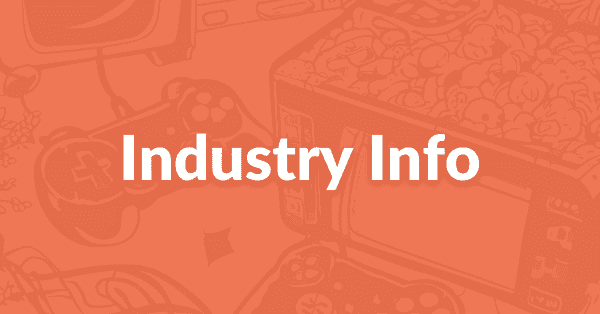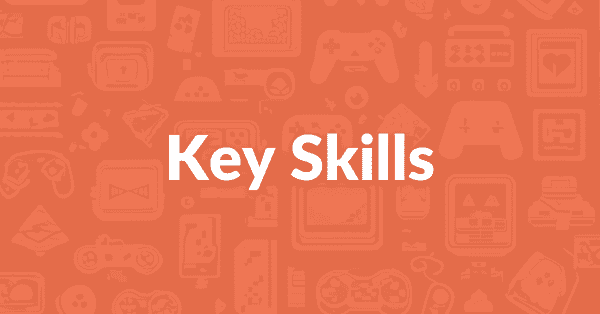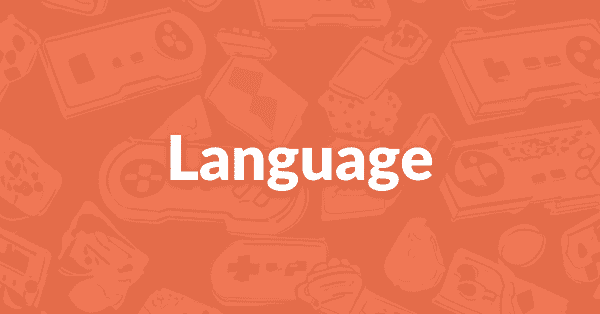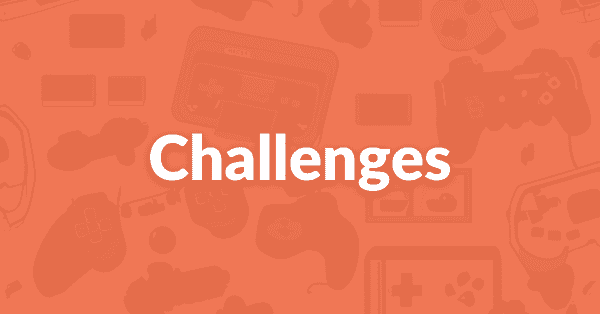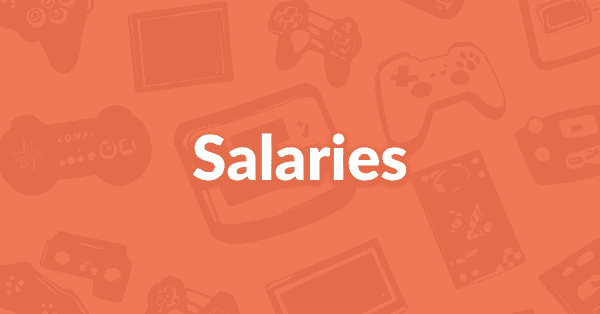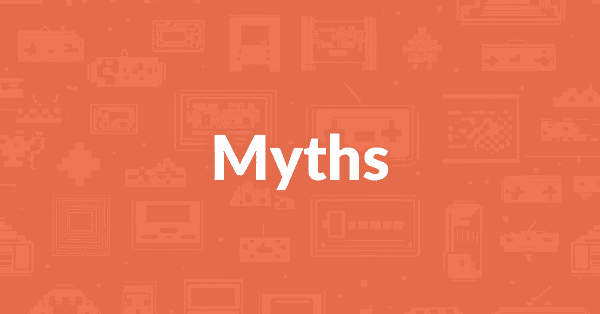Japanese Game Industry: What Gaming Jobs are in demand in Japan?
Universal truths:
As the global market evolves, how does Japan’s gaming industry compare?
What opportunities exist for international talent?
This guide breaks down everything you need to know about pursuing a career in Japan’s gaming sector, using insights from our gaming industry expert, Julie Sergent.
Industry Overview
Japan’s gaming industry holds a prestigious place in global gaming culture, thanks to its rich history of innovation and creativity.
While North America and China have gained significant ground in terms of market size and revenue, Japan remains influential, particularly in game design and development.
China’s gaming sector, especially in mobile gaming, has seen rapid growth with titles like Genshin Impact.
Job seekers are especially drawn to the chance to work with legendary companies that developed iconic games like Mario, Sonic, and Final Fantasy.
In-Demand Roles in Japan’s Gaming Industry
The gaming industry in Japan is constantly evolving, with demand for various technical and creative roles. Currently, the most in-demand roles include:
Game Engineers: Proficiency in C++ and C# is highly sought after, especially for roles involving game engines like Unity and Unreal Engine. Mobile game development often focuses on Unity, while console games tend to use Unreal Engine and C++.
Game Designers: There is high demand for game designers who specialize in creating engaging game mechanics and experiences that keep players hooked.
Artists and Animators: Skills in 3D modeling and animation, particularly using software like Blender, Maya, and ZBrush, are essential for creating the visuals and character designs that define modern games.
As more studios focus on integrating cutting-edge technologies like VR and AR, roles involving these technologies are also increasing.
Engineers and designers with experience in these emerging fields are attractive to companies looking to innovate.
Key Skills
To break into Japan’s gaming industry, possessing the right technical skills is essential. For engineers, knowledge of C++, C#, and game engines like Unity and Unreal Engine is crucial.
On the artistic side, proficiency in tools such as Blender, Maya, and ZBrush is key to creating immersive game environments and characters.
In terms of qualifications, a degree in computer science or game development is often required for technical roles.
Certifications in Unity or Unreal Engine can significantly boost your candidacy, especially for junior roles. For artists, a solid portfolio showcasing your work is often more important than formal certifications, but demonstrating expertise in widely used tools is a must.
Language skills are another critical component.
Language Requirements
Language proficiency is one of the most important factors for working in Japan’s gaming industry. Around 95% of companies require candidates to have at least conversational-level Japanese, particularly at the N2 level of the JLPT (Japanese Language Proficiency Test). This is because effective communication with local teams, especially in collaborative roles, is critical for project success.
Even if you have the right technical skills, lacking Japanese language proficiency can limit your job options. Conversational Japanese (N2 level or higher) is expected for most roles, including engineering, design, and art positions. This ensures smooth collaboration, as team meetings, project briefs, and communication with stakeholders are often conducted in Japanese.
For international candidates, learning Japanese is one of the best ways to improve your job prospects. Although some companies may hire non-Japanese speakers with extensive experience or specialized skills, such opportunities are relatively rare. In most cases, candidates with even basic Japanese proficiency will have a significant advantage in the job market.
In technical roles like game engineering, having conversational Japanese skills is often essential to understanding technical briefs, communicating with colleagues, and integrating feedback into projects. For artists and designers, language skills help with understanding client needs, collaborating on game concepts, and ensuring smooth teamwork.
If you’re targeting roles in global studios or positions where English may be the working language, Japanese proficiency might be less of a priority. However, even in these companies, having basic conversational Japanese skills is often appreciated and can make a significant difference during the recruitment process.
Learning Japanese: Practical Steps
JLPT Certification: The JLPT (Japanese Language Proficiency Test) is the standard measure of Japanese proficiency. Aiming for N2 level (or higher) certification is highly recommended if you want to maximize your chances of securing a job in Japan.
Conversational Japanese: In addition to formal JLPT study, focus on building practical conversational skills. This will help in interviews and day-to-day communication with your team once you’re hired.
Practice and Immersion: Beyond textbooks, immerse yourself in Japanese gaming culture, media, and language. Use language apps, participate in language exchanges, and practice speaking regularly.
Challenges and Preparation for International Candidates
For international candidates, the biggest challenge is often the language barrier. While some studios offer positions where English is the primary language, these are rare and highly competitive. Most companies expect at least conversational Japanese, not just for day-to-day communication, but also to collaborate effectively with local teams. Learning Japanese and obtaining a JLPT certification, especially at the N2 level or higher, is highly recommended.
Building a strong portfolio is also crucial. Aspiring professionals should focus on working on diverse game development projects, contributing to open-source projects, or even creating indie games to showcase their skills. This not only demonstrates your technical abilities but also your passion for the gaming industry.
Cultural differences can also pose challenges for foreign professionals. While Japan’s work culture has a reputation for long hours, this has begun to change. Many gaming companies are adopting more flexible work models, including remote and hybrid working arrangements, especially since the pandemic. That said, understanding Japanese business culture and adjusting to local communication styles can still be a hurdle for many foreign workers.
Salaries in Japan’s Gaming Industry
Salaries in Japan’s gaming industry vary depending on the role, company, and experience level. On average, salaries range from ¥4 million to ¥12 million annually.
Entry-level engineers or designers can expect salaries at the lower end of this range, while more experienced professionals, especially those in specialized or leadership positions, can earn significantly more.
Engineers with expertise in high-demand areas such as game engines, AI, or AR/VR technologies tend to command higher salaries.
Emerging Trends in Japan’s Gaming Industry
Japan’s gaming industry is increasingly incorporating emerging technologies like augmented reality (AR), virtual reality (VR), and artificial intelligence (AI) into game development. One of the most notable examples is Pokémon GO, which brought AR to a mainstream audience in a highly engaging way. Companies are now exploring even more advanced ways to incorporate AR and VR into gameplay, creating more immersive experiences for players.
AI is another area where significant advancements are being made. Japanese companies are using AI to improve non-playable character (NPC) behavior and to personalize gaming experiences based on player preferences. This trend is expected to continue growing as AI becomes more integrated into game design and development.
Another exciting trend is the rise of indie game development in Japan. While the country is known for its large, well-established gaming studios, smaller developers are starting to make waves. Platforms like Steam and Nintendo Switch have made it easier for indie developers to publish and market their games to global audiences, leading to a growing ecosystem of creative and innovative independent games.
Debunking Common Misconceptions
A common misconception about Japan’s gaming industry is that work-life balance is poor, with long working hours being the norm.
While this may have been true in the past, many companies have embraced a more flexible approach in recent years.
Remote work and hybrid models have become more common, allowing employees greater control over their schedules.
Work-life balance has improved, and many studios are focusing on employee well-being and sustainable productivity.
Another misconception is that you need to be completely fluent in Japanese to work in Japan’s gaming industry.
While Japanese proficiency is important, especially for effective collaboration, full fluency is not always required.
Many companies are open to hiring candidates with conversational-level Japanese, especially if they bring valuable technical expertise or experience to the table.
Tips for Landing a Job in Japan’s Gaming Industry
If you’re serious about pursuing a career in Japan’s gaming industry, here are a few key steps to take:
Build a Strong Portfolio: Whether you're an engineer, designer, or artist, showcasing your skills through a diverse portfolio is essential. Work on personal or open-source game projects to highlight your abilities.
Learn Japanese: As mentioned earlier, Japanese language proficiency is highly valued by most companies. Studying for and passing the JLPT (preferably at N2 or higher) will significantly improve your job prospects.
Stay Current with Industry Trends: The gaming industry is constantly evolving. Familiarize yourself with emerging technologies like VR, AR, and AI, as these will play a critical role in the future of gaming.
Network in the Industry: Attending gaming conferences, industry events, and meetups in Japan (or virtually) is a great way to connect with professionals in the field. Building relationships with industry insiders can open doors to new opportunities.c
FAQ: Frequently Asked Questions About Gaming Jobs in Japan
1. Do I need to speak fluent Japanese to work in Japan’s gaming industry?
Japanese proficiency is important, but full fluency is not always required. Many companies seek candidates with at least conversational-level Japanese, typically at the N2 level or higher, to facilitate team communication. However, some roles may be available for non-Japanese speakers, especially if you have specialized skills or experience with well-known game titles.
2. What technical skills are most important for landing a job in Japan’s gaming industry?
For engineering roles, proficiency in C++, C#, and game engines like Unity and Unreal Engine is crucial. For artists, expertise in tools like Blender, Maya, and ZBrush is key. Understanding these tools and languages will help you meet the technical expectations of most Japanese gaming studios.
3. What is the typical recruitment process for game developers in Japan?
The recruitment process often includes multiple stages, such as resume submission, technical tests (for engineering roles), and interviews that assess both your skills and cultural fit. It’s important to highlight your portfolio and any relevant certifications during the application process. Additionally, Japanese proficiency may be tested during interviews for most roles.
4. What’s the average salary for gaming professionals in Japan?
Salaries in Japan’s gaming industry typically range from ¥4 million to ¥12 million annually, depending on the role and experience level. Entry-level roles start at the lower end of this spectrum, while senior or specialized roles offer higher salaries.
5. Are there opportunities for non-Japanese speakers in the gaming industry?
Yes, but they are more limited. Most companies prioritize candidates with at least conversational Japanese. However, if you have significant experience in game development, especially with well-known IPs or console games, you may find opportunities even without Japanese proficiency.
6. How can I make my portfolio stand out?
A strong portfolio should showcase your skills through diverse game development projects. Whether you’ve contributed to indie games, worked on open-source projects, or created game assets on your own, these examples can highlight your abilities. Engineers should also consider including links to code repositories like GitHub to demonstrate their technical proficiency.
7. What are the emerging technologies in Japan’s gaming industry?
Japanese gaming companies are increasingly adopting emerging technologies like AR, VR, and AI. These technologies are being used to enhance game design, personalize player experiences, and create more immersive worlds.


